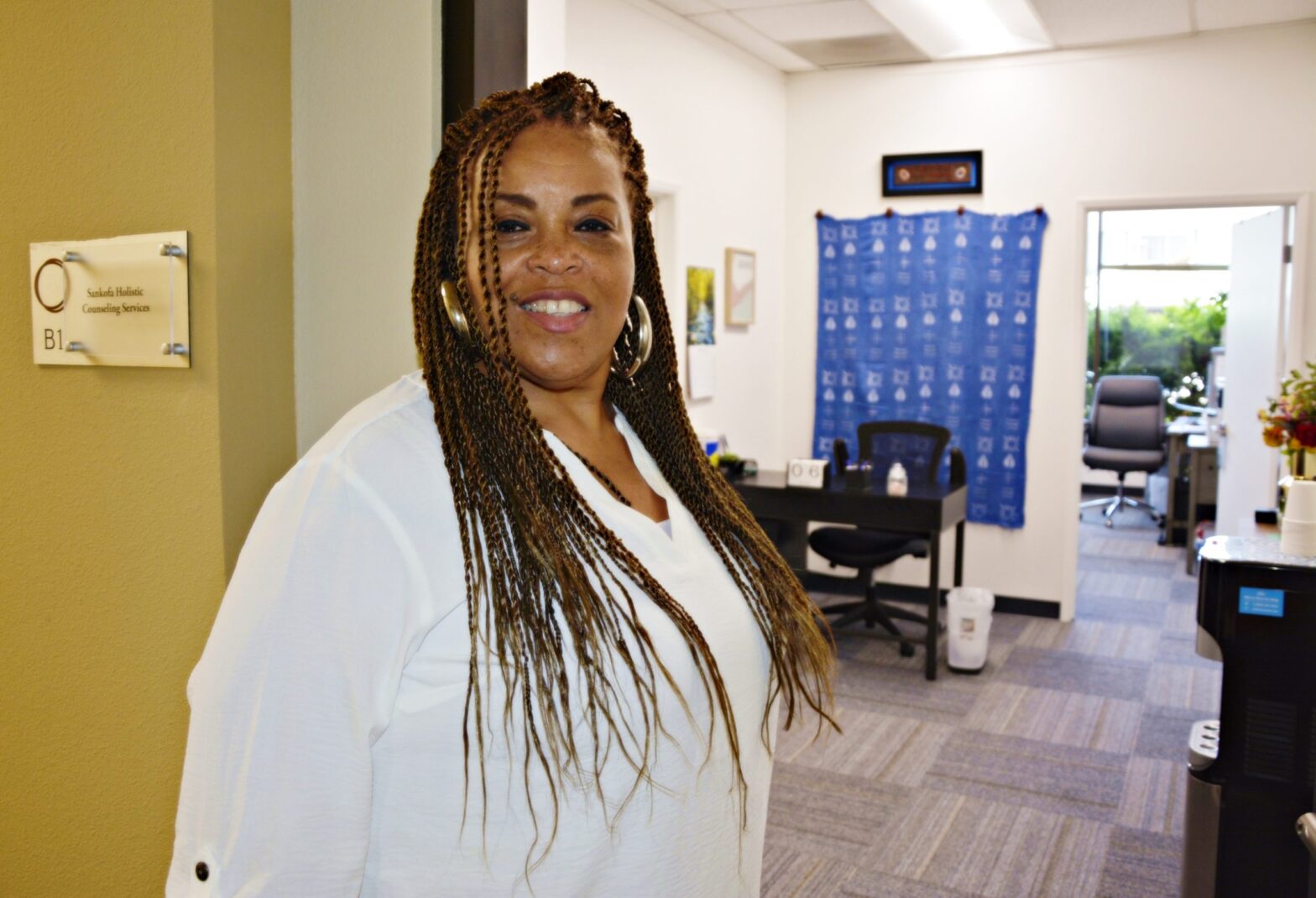A well-established Bay Area-based counseling service has brought its inclusive approach to therapy to Stockton.
Sankofa Holistic Counseling Services opened its first Stockton branch at the start of the year, offering individual, family, couples, child and adolescent counseling to the community. After more than a decade based in Oakland, the practice came to Stockton after one of its co-founding members moved to the city.
Sandra Stultz, who serves as Sankofa’s chief operating officer and clinical supervisor, was familiar with Stockton from visiting her parents, who have lived in the city the past two decades. But once the licensed marriage and family therapist moved to the Valley herself in late 2021, she realized Sankofa’s services could fill a need.
“The uniqueness of our organization is that we are an organization of people of color, and so we have a diverse team of clinicians from a diverse cultures, backgrounds that kind of represents the diversity of the community that we serve,” she said from Sankofa’s office on West Robinhood Drive just north of San Joaquin Delta College.
The majority of its about 35 counselors are BIPOC (Black, indigenous, people of color) as are many of the service’s clients. That focus, Stultz said, helps to work with populations who may have had trouble identifying with traditional mental health therapies.
“A lot of people have gotten very frustrated looking for mental health services that they can relate to,” Stultz said. “And so when they come to Sankofa that’s usually a breath of fresh air that they feel like they’ve come to a place where they actually are entered into a family system.”
The Stockton office opened with about four staff, including Stockton native and associate social worker Alexis Jones and associate marriage and family therapist Amber Cunningham.
The team provides in-person and telehealth services. They accept commercial insurance, private pay and, since May, Medi-Cal through Health Plan of San Joaquin.
To help introduce themselves to the region, Sankofa is hosting the Stockton Community Health Fair from 1 to 5 p.m. Saturday, May 18, at its office grounds at 1341 W Robinhood Dr. The event will include children’s activities, complimentary food, vendor booths and other mental and health care resources.
“Stockton is such a beautifully diverse town. We want to be able to meet the needs of our citizens. We need to have a well-rounded approach, not just the medical model,” Cunningham said.
Compared to neighboring city Modesto, Stockton has more than double the percentage of Black residents, at 11.6%, and nearly triple the Asian population, at 20.9%, according to the U.S. Census. The San Joaquin county seat also has a large Latino population at 45%.
At the same time, San Joaquin County continues to experience a mental health professional shortage, prompting a $5.2 million initiative to train more behavioral health workers in the region recently. A health survey of the Central Valley released this year by the California Health Care Foundation found that more than half, or 54%, of residents reported finding a mental health provider was “somewhat” or “very” difficult.
The clinicians at Sankofa said holistic counseling means they recognize the cultural and ethnic differences that may arise with BIPOC clients. They said that allows them to connect with clients who may feel ignored or misunderstood by other therapeutic services.
“Sankofa prides itself on having a philosophy that is grounded in Black psychology. There’s a whole theory base about Black psychology, and it’s applicable to all people,” Stultz said. “We don’t believe people are broken, but that people need healing. So incorporating people’s ancestry, backgrounds, spirituality and cultures is important, that’s a part of who they are. And sometimes that is missed in traditional Western psychology.”
Counseling from a more well-rounded perspective also means understanding family dynamics, from multi-generational households and working with grandparent guardians. Stultz said that can help create an instant shorthand with people, from a Black client referencing “Big Mama” to a Latino client talking about “Nana.”
“Language is important. When people explain things, if you don’t really understand you may not be able to give them the best treatment. Or sometimes the therapist gives goals that patients actually can’t meet because it’s culturally not appropriate,” Jones said.
Looking at the larger person, and past, can be seen in everything the practice does including its name, Sankofa. It comes from a Ghanaian concept that roughly translates to “reach back and get it.” Their logo incorporates the bird looking back that often symbolizes the idea as well. For Sankofa’s therapists and counselors that means having people look at their histories and culture to help find what’s needed to heal.
“I feel that before you can heal you have to be comfortable and you have to be able to let your guard down and you have to be able to relate to your clinician,” Stultz said. “For some people that can be a barrier if the person doesn’t feel relatable, having to have a clinician that is not of your culture… With Sankofa, a lot of the feedback that we’ve gotten is that they feel at home. They feel seen, they feel heard for the first time.”
Marijke Rowland is the senior health equity reporter for the Central Valley Journalism Collaborative in collaboration with the California Health Care Foundation (CHCF).










